Like many of you, I’ve been following the events in Ferguson and around the country very closely these past two days. Flipping from headlines to my social media feed, my head has been spinning with thoughts on issues ranging from racism and white privilege to our justice system and media culture. As last night’s protests spilled into the streets and freeways across America last night, this story came even closer to my own sphere of activism.
The shooting of Michael Brown and the decision by a Grand Jury to not indict Officer Darren Wilson isn’t a BikePortland story. We cover bike news and culture. But we also cover social issues — like sexism, racism, gentrification, and so on — that often intersect with bicycling.
So this morning, when I followed a link (shared by Elly Blue on Twitter) that led to a publication of the League of American Bicyclist’s Equity Initiative, I knew it was something I wanted to share here on the Front Page.
Advertisement
The slide presentation below, Seeing & Believing in Bike Equity was created by the League’s Equity Initiative Manager Adonia Lugo. Dr. Lugo (a past resident of Portland) is a cultural anthropologist whose insights I often find challenging, revealing, and important. As she says on her Twitter profile, as a cultural anthropologist working on the bike advocacy field she has the background to, “think about built environments, culture, and social justice at the same time.”
We need more people thinking like that.
Lugo’s short slideshow below was just published yesterday. It draws a connection between the Ferguson protests and active transportation and uses quotes from other advocates she has interviewed:
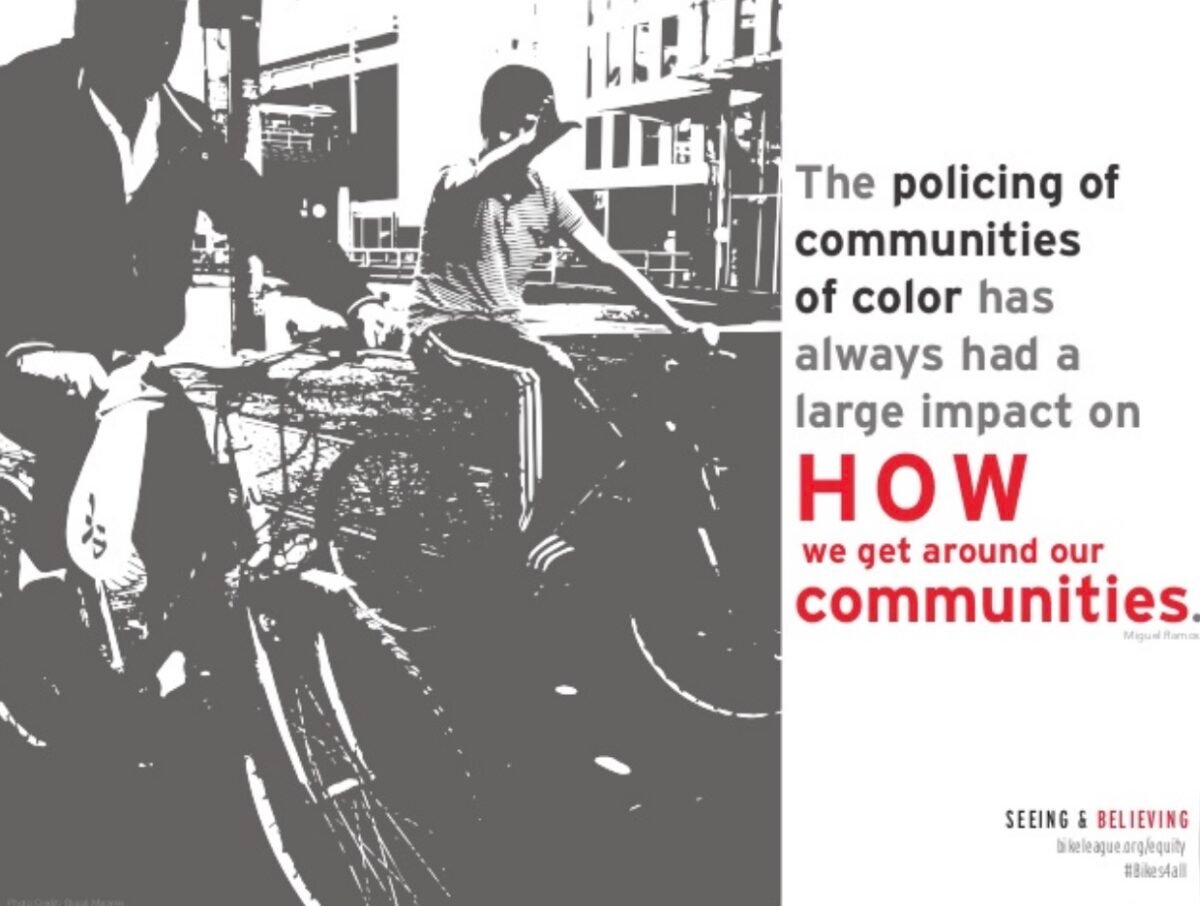
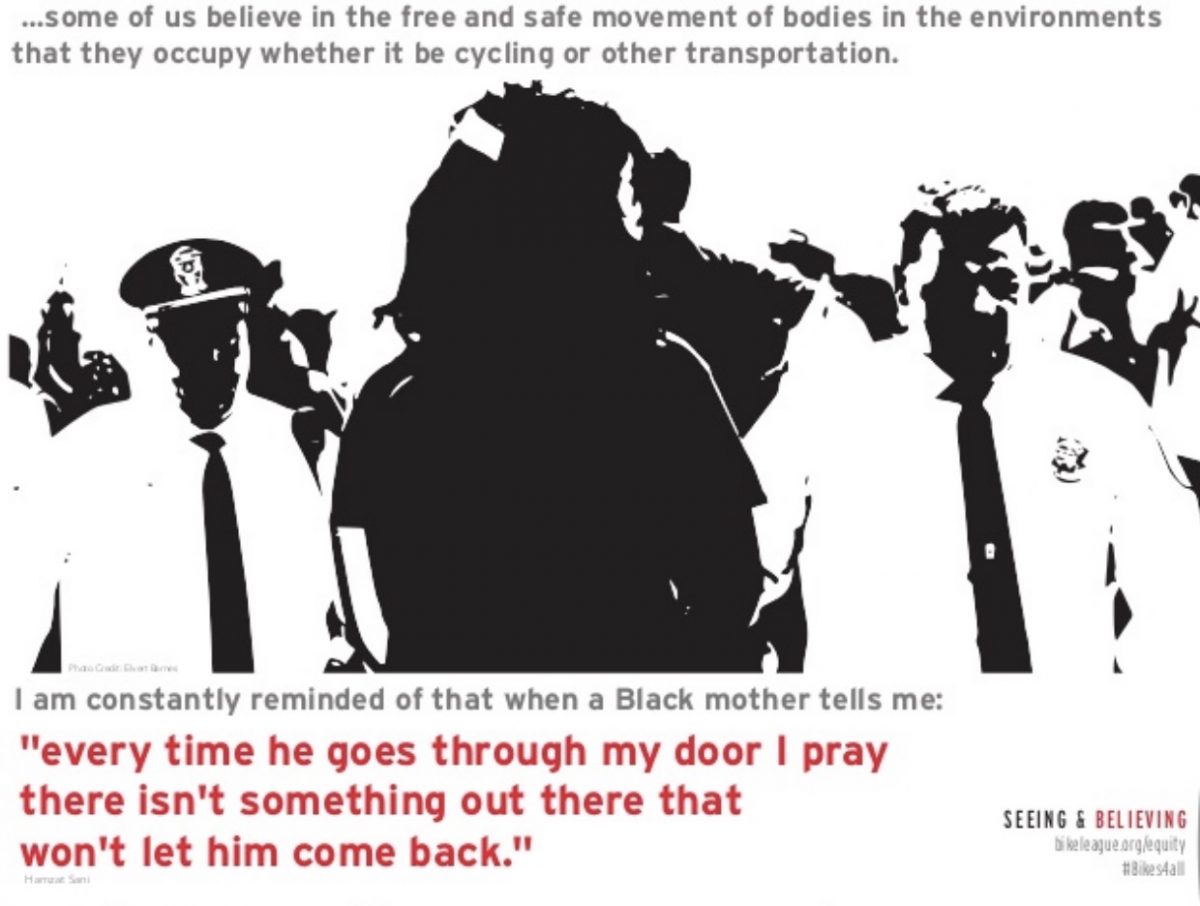

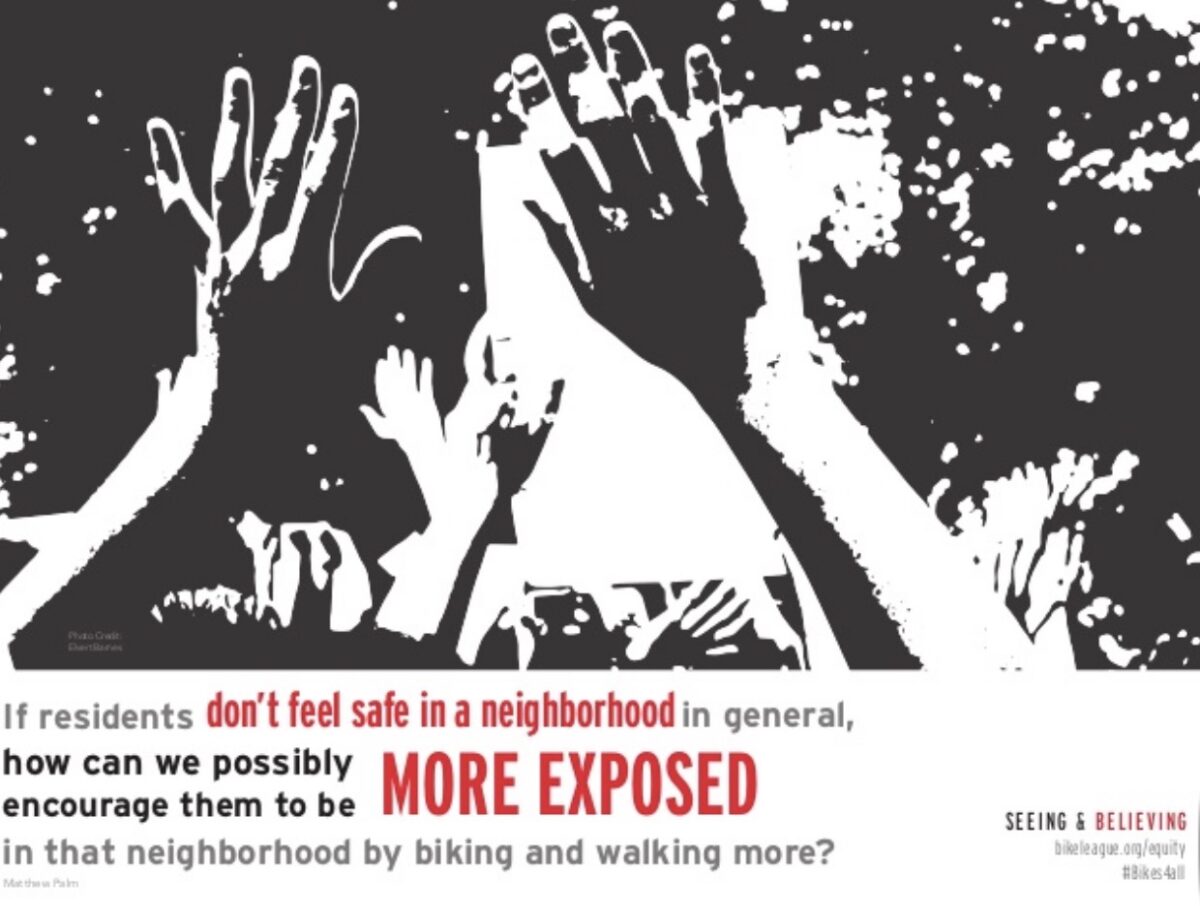

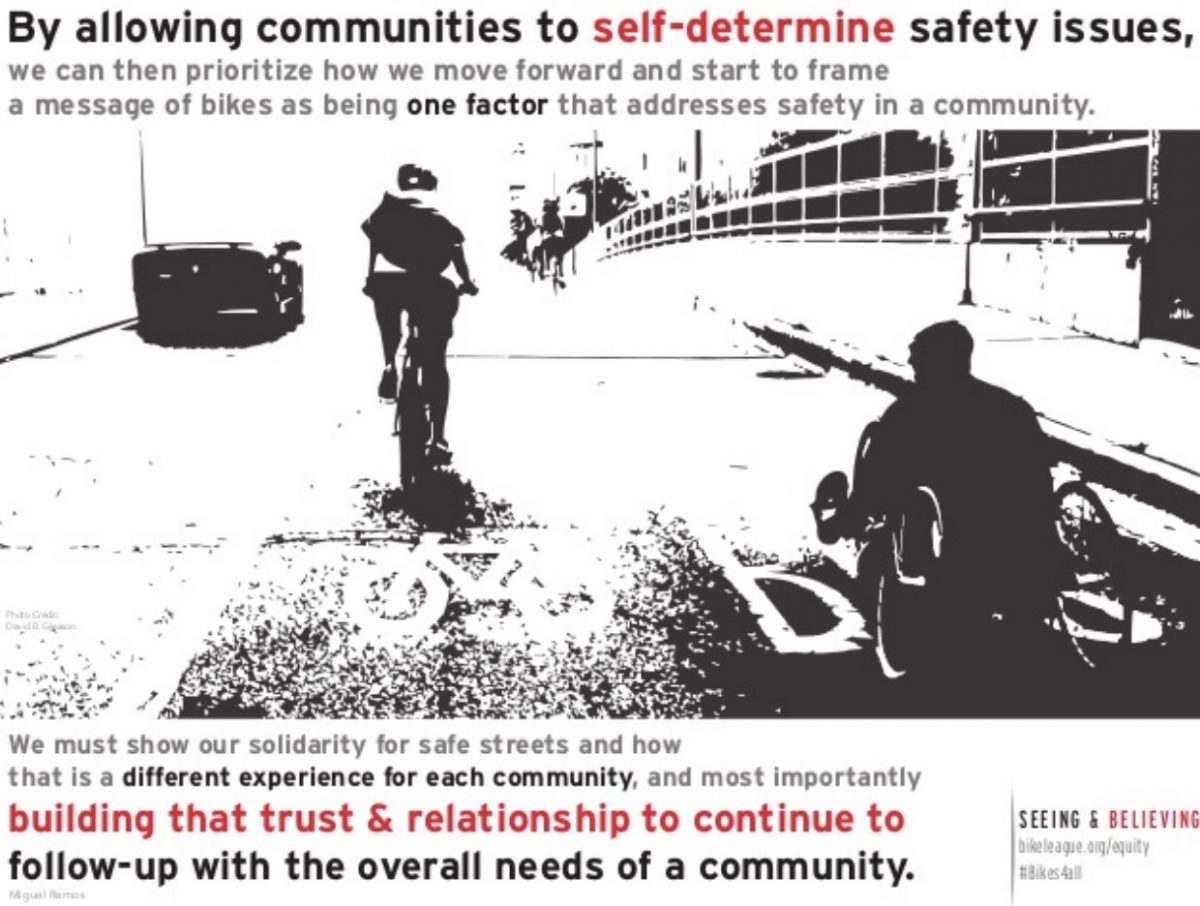
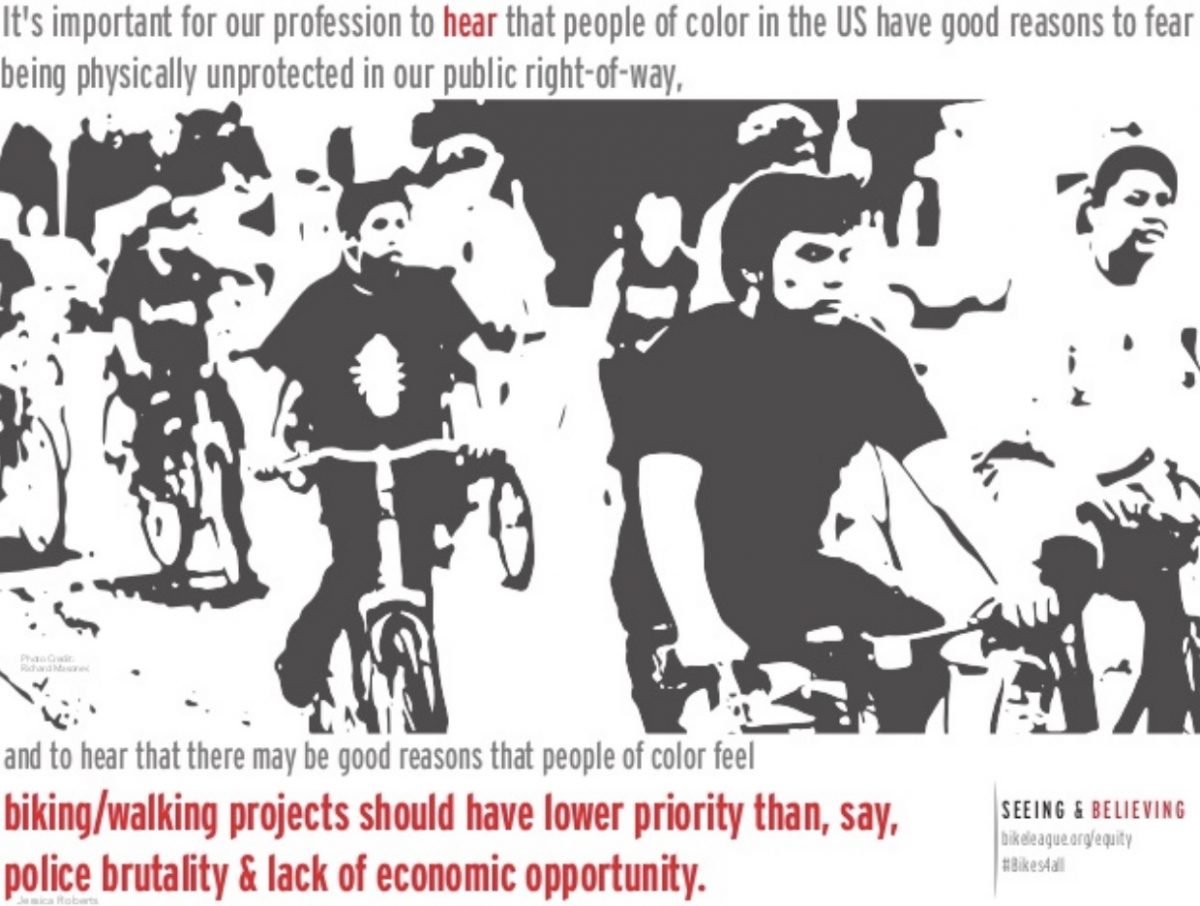
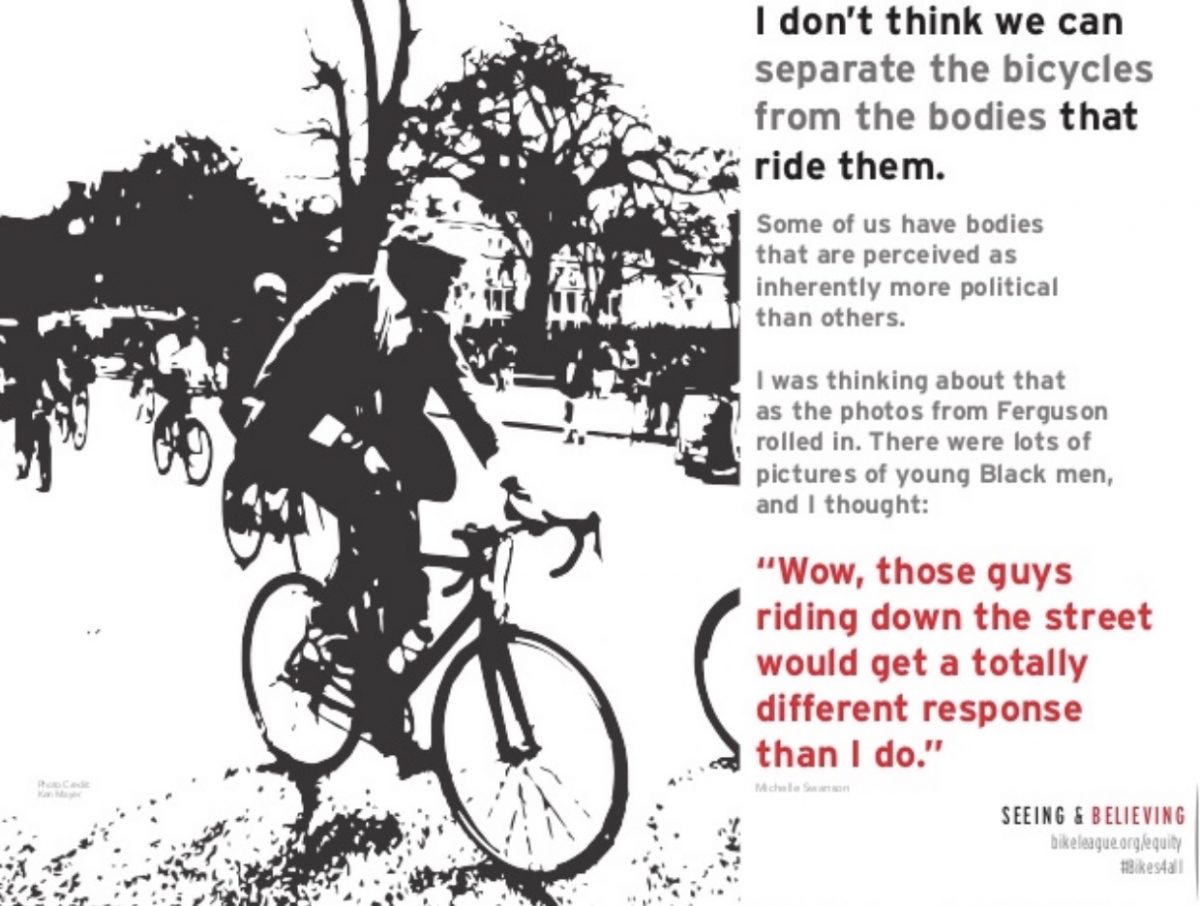
And to further understand the context of the slides — and how perceptions of the police will become even more important as Vision Zero takes hold in America — here’s more from Lugo taken from her blog post on BikeLeague.org (emphasis mine):
“The reality of police mistrust matters to the League’s Equity Initiative because more cities and advocacy organizations are developing plans for Vision Zero projects, which hinge on increased police enforcement of traffic laws. Vision Zero is absolutely coming from the right place, and it provides a much-needed common cause across the many different kinds of traffic violence. It intersects, though, with the painful reality that not everyone in this country feels safe looking to law enforcement for help.
Can we build common cause for safe streets that includes the fears of racial discrimination keeping so many people in their cars? What do enforcement-based approaches to traffic safety look like when they respect and address the realities of police mistrust? We’re going to start exploring how to answer these questions with insights gathered from bike/ped advocates this fall. Using their quotes, Dr. Echo Rivera has crafted images that shed light on why race matters in active transportation.”
I think Lugo and The League are knocking on very important doors. This stuff isn’t what we (people who love bicycling and want to see more of it) have traditionally thought about — but as events unfold around the Ferguson case, it increasingly seems like we should.
You can follow Adonia Lugo on Twitter at @UrbanAdonia. For another perspective on the protest, read this recap from The Oregonian..


